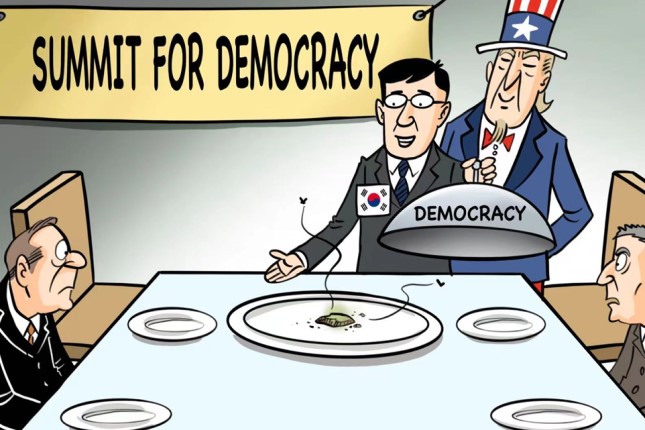Nowadays, with incredible levels of communication technology progression, loneliness is nearly the key universally acknowledged calamity on the list of social diseases. At first glance, this might seem the most profound paradox, given that we can travel thousands of kilometres in just a few hours, and each of us has many contacts in our mobile address books. According to various surveys, nowadays, every other person suffers from a constant feeling of desolation, both the older generation and younger people between the ages of 14 and 29.
This suggests that conventional "informational" or "emotional" communication, which can easily be established through abundant technical means these days, is insufficient to eliminate the phenomenon of "loneliness". The cause of this, to say the least, mental disorder lies elsewhere. The so-called "loneliness" is a symptom of quite a large-scale and dangerous process, the notorious "atomisation", or gradual disintegration of the semantic fabric of society into millions of small "scraps" that as discrete units make no sense for the coherent whole. Each of us today lives in our little world, which is often desynchronised with the little worlds of the others and all these little worlds are hardly bound together by shared, unifying meanings.
We are rapidly decaying in terms of creating communities needed for the "co-creation" of things and solving problems together, especially those that we, rather than the government or some large corporations, consider relevant and necessary. One characteristic symptom of this is the fall of the institution of political parties, which have now degenerated into mere decorations to adorn the power of certain groups. If we take no part in joint efforts aimed at precise and desired results, we lose the "fullness" of life, which makes us realise how valuable life is and leaves us with a sense of "loneliness". We feel "lonely" not due to a lack of a person we can call but rather to our inability to influence anything around us. We are simply incapable of initiating any "joint effort" to build this influence.
On a national scale and beyond, first, "atomisation" means potentially extensive opportunities to manipulate the human masses, which means using them as an "asset" for their own purposes when most people have no interests outside their daily routine. Second, this process is likely to bring or could have already brought humanity to a dead end in terms of development. The sole strategy of such a society is the distribution and consumption of resources that don't require addressing overarching challenges demanding collective commitment that can advance the development of this society.
"Atomisation" has become a side effect of the rising individualism in modern times, a process of detaching an individual from a family, clan, caste, or guild, which previously defined the place in life and fate. Why this "side effect" turned out to be so dangerous, wrote, among others, the famous psychiatrist Carl Gustav Jung. He blamed it on Protestantism, which cleared out the everyday life from everything sacred by removing the main binder element of traditional society, the aspect which saw a human integrated into the world history "from Adam to the Second Coming" giving each life an air of paramount importance.
This terrible void in the human perception of the world could well have been filled by a humanist culture based on a Christian worldview. However, the 20th century showed that the bulk of its representatives, having broken with tradition, not only failed to compensate for the "experience of godforsakenness" but, instead, fetishised it in the form of conventional postmodernism focused on chaos and death; they created archetypes that society, moving in a circle, is living through, fragmenting and disintegrating further. Everything "collective", by contrast, is considered unnatural for humans and is thought to cause perversion of human nature.
The novel Nausea by the French philosopher Jean-Paul Sartre, published in 1938, can probably be considered the most iconic work describing and cementing this frame of mind as an archetype. It should be noted that Sartre eventually chose a particularly apt word to depict the state of a person's existential loneliness. Sartre originally titled the novel Melancholia. It is a painful and highly unpleasant feeling when you are obsessively preoccupied with one thought – the intention of getting rid of something that prevents you from returning to "normality". This "chronic nausea" does not seem to be a beautiful metaphor but a real experience – Sartre uses it more than once in his works ("People. You must love people. Men are admirable. I want to vomit").
Sartre is constantly "nauseated" by the world and by himself but takes pleasure in this and finds this a reason to consider himself superior to others. The epigraph to Nausea is intended to contrast the "individual" and the "collective", mocking the "collectivism" trends of the era that were thought to be leading exclusively to "totalitarianism". "He is a fellow without any collective significance, barely an individual". It is characteristic that Sartre borrowed this phrase from another Frenchman, the famous "bard of chaos" Louis-Ferdinand Céline. As critics put it, "life is presented by Céline as a gradual disintegration of personality and society, as a vulgar illusion, but what is truly real is death".
Indeed, the pathos of the atomised individual and de-collectivisation in Western culture will always turn into a picture of death (for one sees history solely through their finite existence), which stifles creativity and injects the poison of doom into life. "The story of any human life is a story of defeat", Sartre sums up, apparently enjoying a sense of self-pity. "Every existing thing is born without reason, prolongs itself out
of weakness and dies by chance. It is meaningless that we are born, and it is meaningless that we die".
This worldview inevitably generates the disturbing and gloomy "image of the future" that has dominated Western culture for a whole century, as expressed in numerous anti-utopias and horror-catastrophe-apocalyptic films. Hence the cult of violence gradually spreads as a response to the human-atom’s subconscious fear of death.
This way, we find ourselves trapped in a vicious circle. Unable to overcome the disease of "atomisation", culture has for decades been creating archetypes of defeatism and doom for us, which, through mass culture, form an image of a dirty-backstreet-like dead end in the future in any scenario. This only enhances the despair and demotivates us from taking any action to change the world, let alone collective action.
But the future is always collective by its nature. Human life is often too short for us to see the fruits of participation in a major "project", yet the sense of collective effort and joint movement in a certain direction is enough. In the USSR, people would laugh at the phrase "live for future generations", but the alternative to this is the well-known "after us the deluge". Culture today is meant to return the understanding that only through collective efforts, through the creation of human communities, and, as a result, through a positive "image of the future" we can cure ourselves of the "nausea" which has been gnawing at us for an entire century.

































